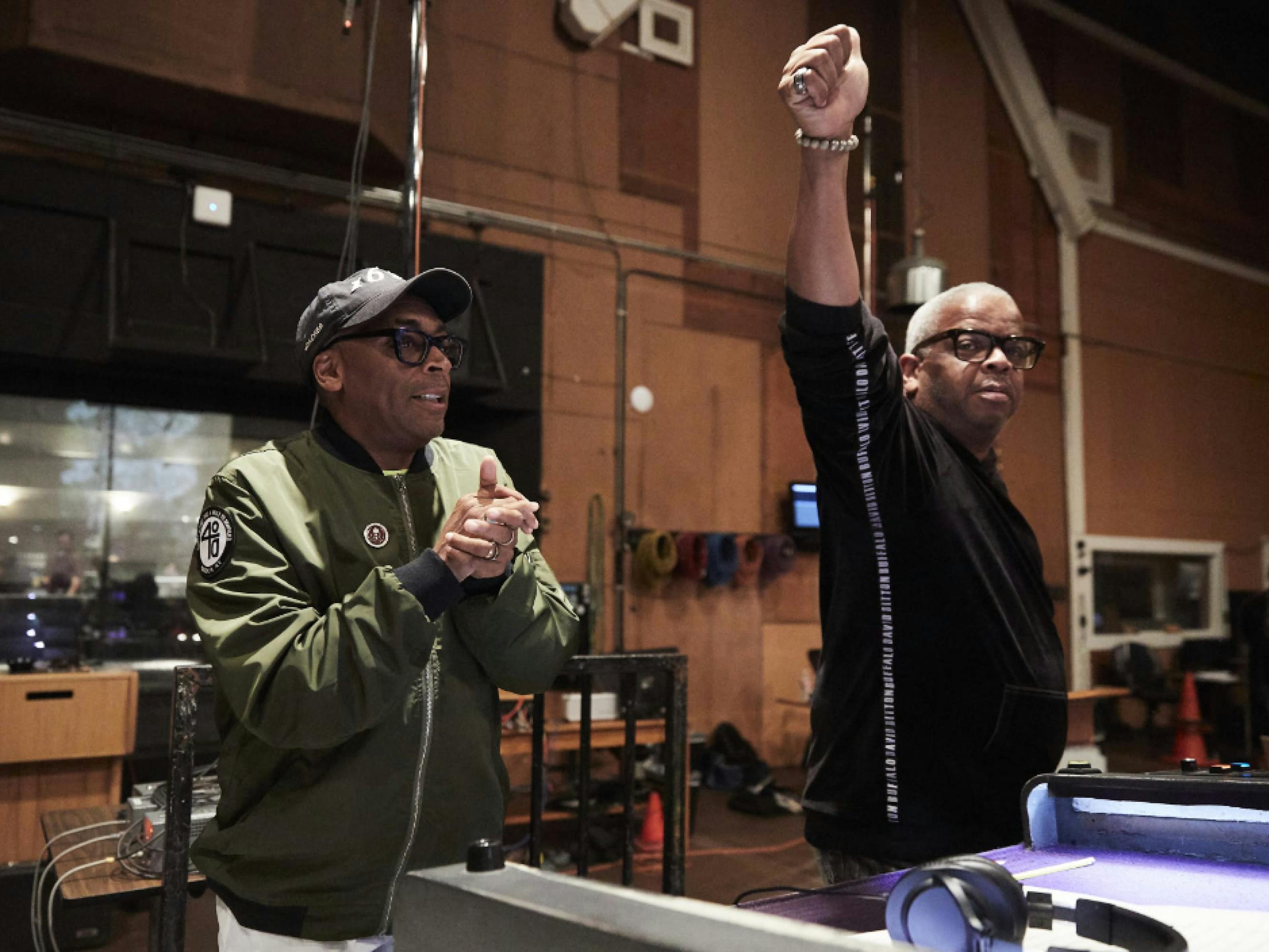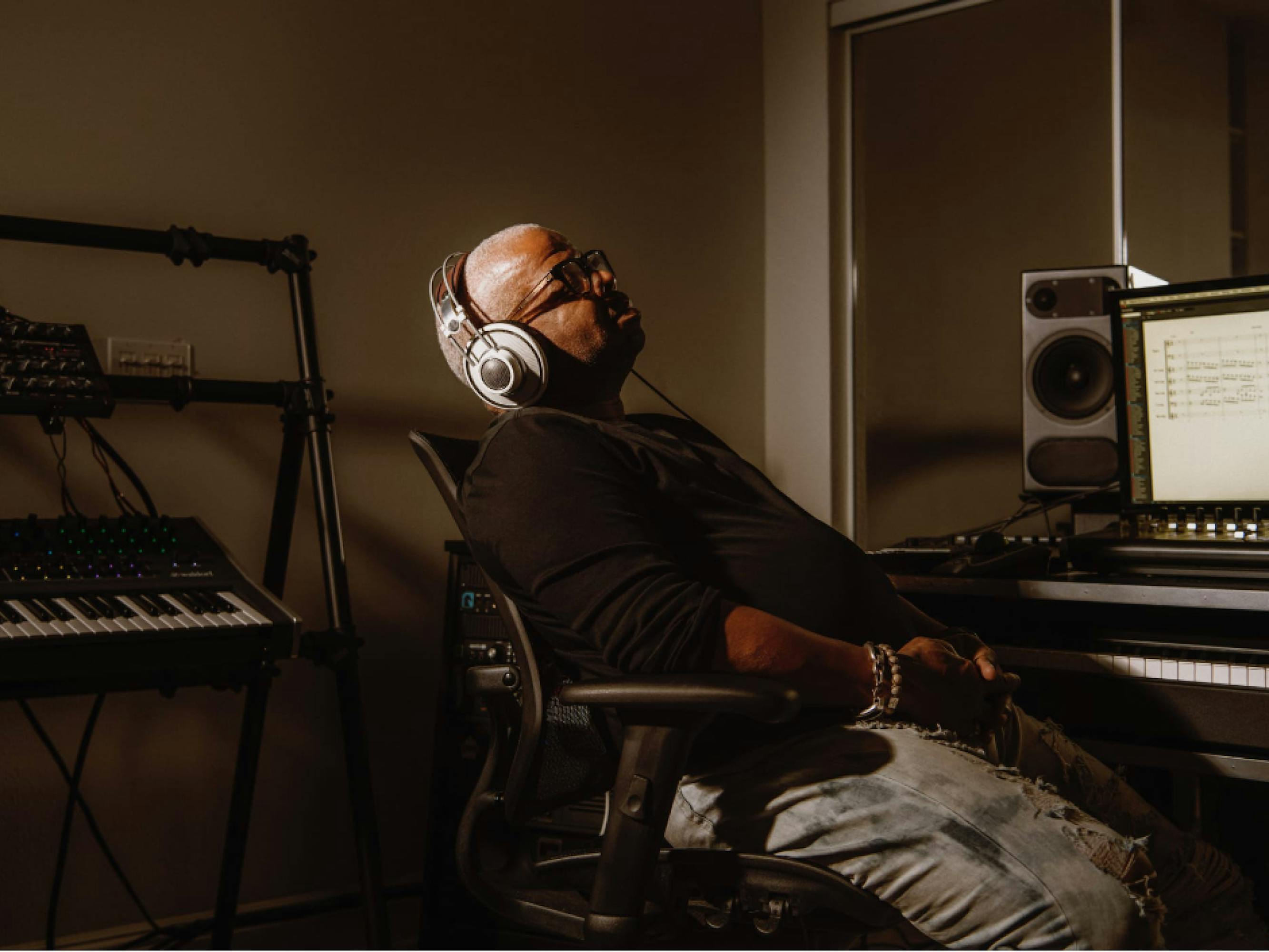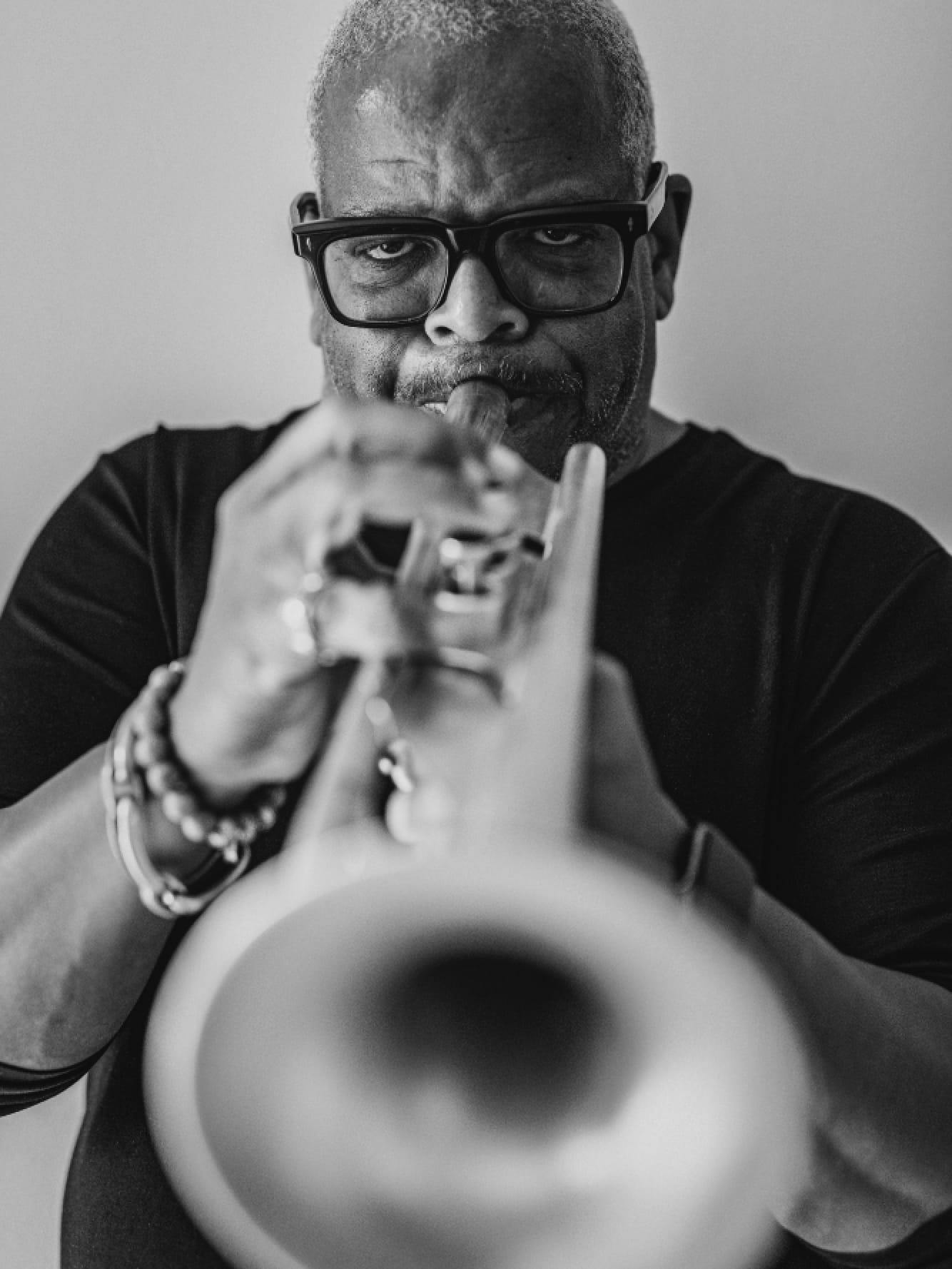Composer Terence Blanchard and filmmaker Spike Lee on their 30-year collaboration and the score for Da 5 Bloods.
Spike Lee’s collaboration with Grammy-winning composer Terence Blanchard goes back to some of Lee’s earliest projects. In those days, the filmmaker’s father, jazz musician Bill Lee, was composing his scores, and Blanchard was playing trumpet in the orchestra. It’s true that Blanchard made the mistake of showing up to his very first recording session wearing a Lakers hat, t-shirt, and Converse sneakers, but Lee soon brought him over to his side: “The next thing you know, I’m on the court screaming, ‘Take ’em, Pat!’ Blanchard recalls. “I’m out there just rootin’ for the Knicks.”
Blanchard began composing Lee’s scores in 1991, with Jungle Fever. Their partnership now spans three decades and almost 20 projects, snagging the composer an Oscar nomination for his work on 2018’s BlacKkKlansman. Their latest project is Da 5 Bloods, a story about four Black war vets who return to Vietnam in search of their fallen squad leader’s remains and a buried treasure.
The film itself is undergirded by Marvin Gaye’s seminal 1971 album What’s Going On, which was partially inspired by Gaye’s own experiences around the Vietnam War. The album acted as a jumping off point for Blanchard to conceptualize his score. The result is every bit suited to this unconventional war epic; the 90-piece orchestra sails to glorious heights, variously triumphant and terrible, and descends into dark, lonely passages. “All of the emotion, all of the drama is on the screen,” Blanchard says. “All you have to do is learn how to listen and to be with it.”

Spike Lee and Terence Blanchard at work
Photo by Matt Sayles
In a conversation hosted by SFFilm, Spike Lee talked to his longtime friend and collaborator Terence Blanchard about scoring Da 5 Bloods.
Spike Lee: Terence started out playing trumpet in movies my father did the scores for. He played on School Daze. In Mo’ Better Blues, when you hear Denzel Washington, that’s Terence. Terence, why don’t you tell the story about how it happened?
Terence Blanchard: I became a film composer because I’d done a pre-record for Mo’ Better Blues at the same time that I was getting ready to do my first solo project for Columbia Records. I was sitting at the piano playing this tune when Spike walked by and went, “Hey man, what is this?” I said, “Oh, it’s something I’m working on for my album.” He said, “I love it. Can I use it in a film? Just record it in a little trumpet piece?” I said sure. Later on, he asked me if I could write a string arrangement for it, and I lied and said I could do that.
My second film score was Malcolm X. I didn’t think Spike was going to call me to do it. It was such a big film. I did a lot of studying and a lot of listening and analyzing films. I knew that when people went to see Malcolm X they weren’t going to say, “This is a first-time composer”; they weren’t going to say, “This is a guy sitting in a room by himself.” I was going to be compared to everybody that was in L.A., and there couldn’t be no excuses. I had to do my homework.
SL: You’ve provided the backbone for so many films over the years. A key component of all of my films is the score. It is so hard to describe what you want when you’re not a musician. I’ve gotta do my homework, I’ve gotta learn all those Italian musical words.
TB: No, man, I’m telling you, you really don’t. Everything that you need is on the screen, you feel me? There’s nothing for me to make up. I mean, that opening sequence in Da 5 Bloods— I love when it goes to the wide shot and you see the helicopter going into the valley. I just used the drum and the horns right there because that spoke to me.
Most people may not know that Spike really doesn’t like action music. He wants really melodic, mostly operatic music. So when that action started, I had to figure out a way to make that music constantly shift, because the action is moving and shifting. When you watch that scene, the energy’s going and going and going, and all of a sudden it stops when Chadwick Boseman is down on his knees in that last shot. Working on this film was an incredible experience because literally what I had to do was just watch the film. I know that sounds simple.
SL: When you’re writing for a full orchestra, what are your go-to instruments for different feelings you want to give?
TB: One of the first things I had to learn with you is you wanted to have melody everywhere. I’m like, “Well, the trumpet can’t play that everywhere — that’s not gonna work!” I remember by mistake I put an alto flute on something, and it just sat there. You could hear the melody, and it didn’t get in the way of the dialogue. And then there are certain things about the cello that I just love. When we did 25th Hour, there were a couple of beautiful cello solos in there. Cello has a vocal-like quality when you hear it, which can be very beautiful and very emotional. Those are some of my go-to instruments. But all in all with the orchestra itself, there’s a certain type of open harmony I try to use to elicit certain types of emotion.
SL: What do you mean by the term open harmony, sir?
TB: The chords, the notes, are spaced out. By keeping them open like that, that gives a very full sound. Then other times, I use a very close harmony. Once you develop that vocabulary, then the rest of it is, O.K., what melodic content am I going to use? What rhythmic content am I going to use? Who’s playing it? All of those little tricks help tell the story. They help shape the sound and the color. But it’s all dictated by what’s on the screen.
When you called me to do Jungle Fever, I went out and I started studying Stravinsky’s The Rite of Spring, and Debussy — I looked at all of these scores. Then when I saw the movie none of this applied. I couldn’t use any of it. I called my composition teacher and he even said, “Trust your training.” So that’s what I did. It’s a process of having it reveal itself to you.
I was scared to death working on Da 5 Bloods. What’s that analogy I always use? Fast break, 10 seconds left in the game. You’re on the team with Michael Jordan, Scottie Pippen. They shoot you the ball in the corner, one second left. When you take the shot, you have to have the skills to take the shot. When Spike gave me the film I was like, Oh my God, everybody’s done their work. Now it’s left to me. One of the things that Spike does — and I know he means well when he does it, but he doesn’t know it can scare the daylights out of me — is he’ll call me and go, “Time for you to take us to the next level.”

Terence Blanchard in the studio
Photo by Dustin Aksland
SL: Well, that’s what scores can do.
TB: Spike’s films are always about the human condition. Spike’s films are always about the heroism of people who haven’t been celebrated. You look at Miracle at St. Anna, you look at 4 Little Girls, you look at all of those films. The thing that I’ve always tried to do with the score is to pay homage to those people whose shoulders we’re standing on. As soon as you told me Marvin Gaye’s music was going to be the backdrop to Da 5 Bloods, that set up everything. The rest of it, for me, was to pay homage to those guys who were giving their lives for our freedom.
